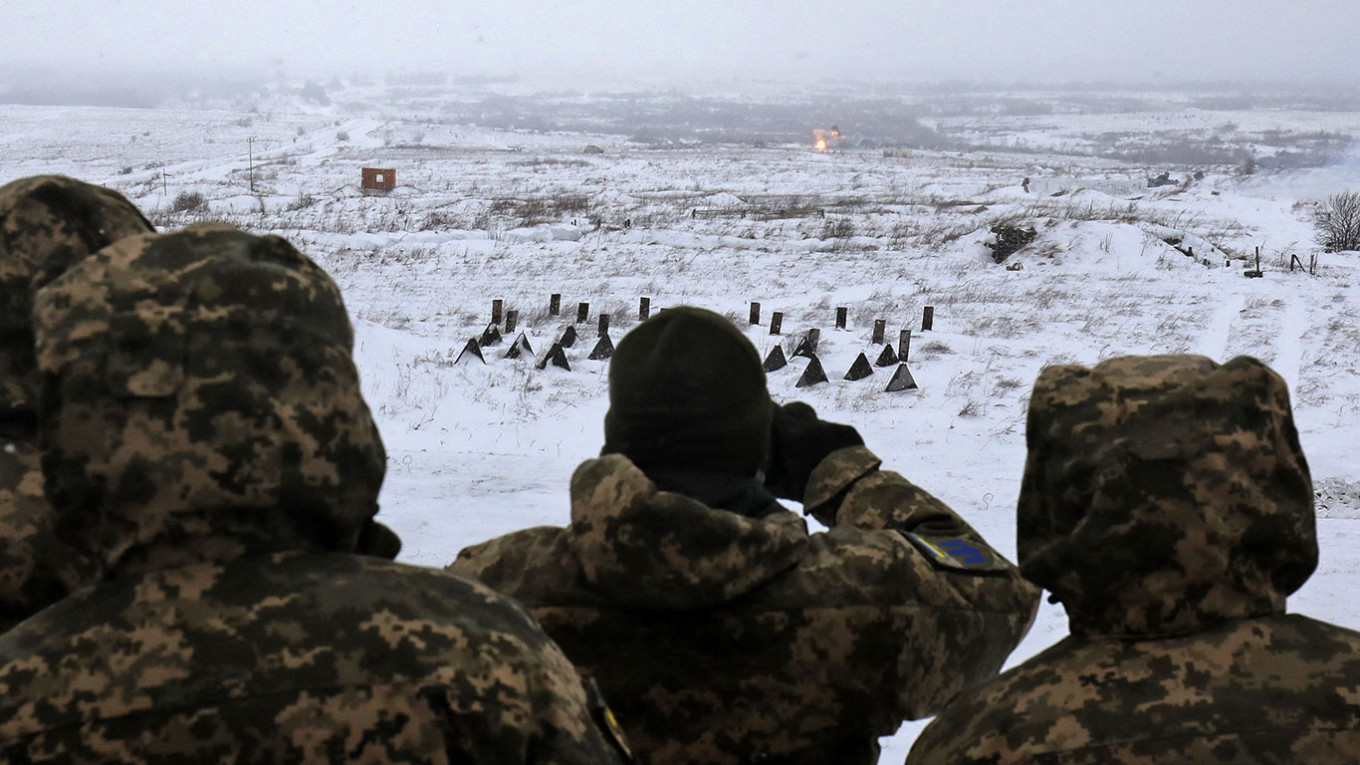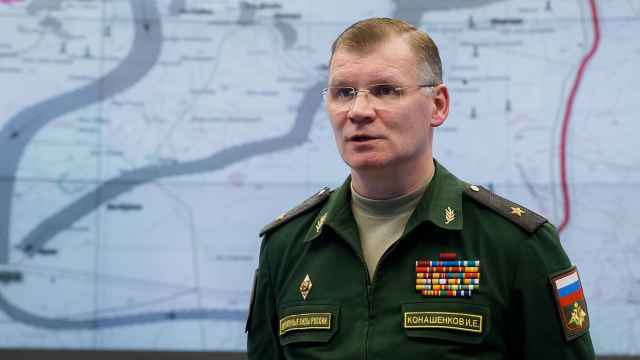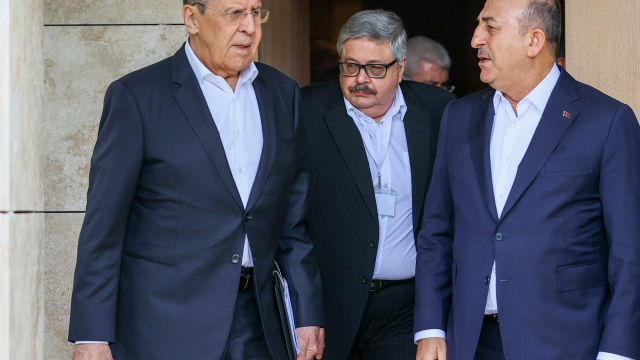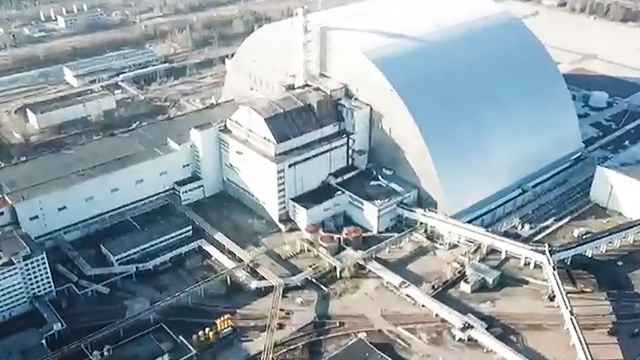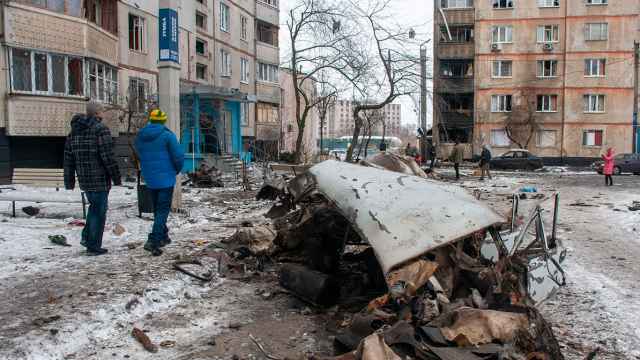Over the past days and weeks, media outlets have been proliferating all kinds of apocalyptic predictions and scenarios on the immediate prospects of the Ukrainian crisis.
Journalists, experts, and politicians claim — with all seriousness — that a Russian-Ukrainian war can hardly be thwarted, not to mention article that seek to explore a purported coup in Kyiv, the crushing response of the West, or even the looming nuclear conflict of global dimensions.
We shall try to find an answer to a number of interwoven questions, which might arise in the minds of those who face this wave of dire prophecies and predictions. Why has this information attack been unleashed? Who is behind this and who is deriving profit from it? What is really going on and what could happen to the Ukrainian issue in the near future?
Starting off with Moscow’s plans and intentions. Anyone who is slightly familiar with the structure of power in Russia knows well that it is few people who are especially close to the power circles that are aware of the true plans and the motives of the Russian authorities.
As a rule, these people tend to avoid showing up in the media. Strong statements are usually made by those tasked by their superiors to attract a lot of exposure or by those who act at their own discretion to be noticed and appreciated by their top management.
Obviously, none of these talking heads are privy to any of the Kremlin’s plans, which means they are simply working out their tasks at a higher or lower professional level. Regrettably, being baseless and of no practical value, the campaign — launched by such ‘concerned’ people about the allegedly impending war in Ukraine — invariably affects the public sentiment in our country, causing either panic or warmongering.
This bellicose campaign, coupled with its dire consequences, has the potential to seriously demoralize and traumatize Russian society. Time will tell what repercussions this may bring about; still, nothing good can obviously be expected from this wave of hysteria.
It can be assumed that some in Russia need another anti-Ukrainian campaign to deflect attention from the country’s severe socio-economic and political problems, to raise the population’s patriotic spirit, or to unite the country. If one thinks so, one is likely to be seriously disappointed over time. The very idea of war against Ukraine or in Ukraine is insufficient for a new national idea; it is not even close to a platform on which Russian society could be consolidated.
Now let’s take a look at this problem from Ukraine’s perspective. We have to admit that there are many in the country who are interested in stirring up information hysteria around the relations with Russia, and for various reasons. They assume that playing the role of an innocent victim of the bloodthirsty Russia can only bring benefits to Ukraine.
First, they believe that this way it would be easier to implement a plan in order to shape a new national identity. Second, the West might be willing to turn a blind eye to Ukraine’s domestic scandals, corruption cases and other issues. Third, one can count on increased economic and military aid by playing the victim. Fourth, numerous clumsy actions of Russian propaganda only serve to strengthen anti-Russian sentiments across Ukraine. Therefore, it is logical to assume that Kyiv will go on with doing everything it can to heat up tensions in the media environment.
The campaign around Russia’s alleged imminent aggression in Ukraine is also good for Washington and its Euro-Atlantic allies.
It provides a distraction from their own domestic problems, allowing for cohesion within the archaic NATO and diverting attention from the ignominious flight of the Western troops from Afghanistan.
By focusing on what is going on around Ukraine, the White House is trying to counter the Europe-wide perceptions that the Atlantic string of U.S. foreign policy is finally receding into the background of U.S. priorities, giving way to the Indo-Pacific, which is more important to Washington.
Long story short, everyone is minding their own business, spinning a propaganda war around Ukraine.
Are there any forces that might actually be interested in a full-blown rather than a propaganda war in Ukraine? The situation looks different here. If one puts aside the opinions of fierce fanatics and professional instigators, it turns out that no one needs an actual war with the use of modern weapons, countless casualties and immense destruction. Everyone would lose from such a war, be it Russia, the West, or Ukraine. This would entail such political, military, and economic costs for everyone that it would not be easy to recover for decades, not merely years. The repercussions of a major war at the center of Europe would be no less lasting than the ramifications triggered by the Chernobyl disaster, which have persisted for almost forty years. Who would be willing to take such a risk?
We allow ourselves to draw a relevant, if not too original, conclusion, leaving all the forecasts and scenarios of a military conflict at the heart of Europe to the conscience of numerous slacktivists.
The only decent way out of the current situation is for all sides to immediately meet at the negotiating table on mutual security guarantees. Russia, the United States, and NATO have all presented their proposals on this matter. The positions of the parties are known. Now we must come to agreement.
This article was first published by the Russian International Affairs Council.
A Message from The Moscow Times:
Dear readers,
We are facing unprecedented challenges. Russia's Prosecutor General's Office has designated The Moscow Times as an "undesirable" organization, criminalizing our work and putting our staff at risk of prosecution. This follows our earlier unjust labeling as a "foreign agent."
These actions are direct attempts to silence independent journalism in Russia. The authorities claim our work "discredits the decisions of the Russian leadership." We see things differently: we strive to provide accurate, unbiased reporting on Russia.
We, the journalists of The Moscow Times, refuse to be silenced. But to continue our work, we need your help.
Your support, no matter how small, makes a world of difference. If you can, please support us monthly starting from just $2. It's quick to set up, and every contribution makes a significant impact.
By supporting The Moscow Times, you're defending open, independent journalism in the face of repression. Thank you for standing with us.
Remind me later.



